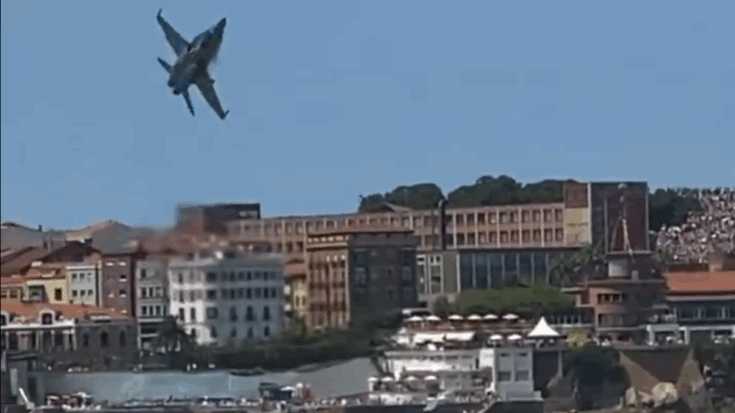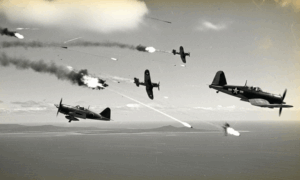F/A-18 Hornet Nearly Crashes During Spanish Beach Airshow

@Osinttechnical / X (Twitter)
Sudden Maneuver Stuns Spectators in Gijón
During an airshow in Gijón, Spain, a Spanish Air Force F/A-18 Hornet came dangerously close to crashing in front of a large beach crowd. The jet, known locally as the EF-18, was flying low and fast toward the water, nearly perpendicular to the shoreline. Just as it neared the packed beach, it suddenly rolled hard to the right, dipped toward the waves, and quickly pulled back up into the sky. The quick move surprised spectators, many of whom were recording the flight.
The incident demonstrated one of the Hornet’s key flying features—its ability to perform sharp turns and point its nose at extreme angles, even at slower speeds. This maneuver likely saved both the pilot and the plane. If the aircraft had gone out of control or even broken apart, debris could have hit the beach, leading to serious injuries or worse.
No Signs of Reckless Flying
At first glance, the move didn’t seem like an error or an unsafe stunt. The maneuver didn’t look like a case of a pilot flying too low or trying to impress the crowd with risky behavior. Spain’s Air Force is known for its professionalism, and the idea that a trained pilot would attempt something reckless in such a setting is unlikely. Airshow rules also warn against flying directly at crowds, since one small mistake can lead to disaster.
Back in 2023, Spain had already lost an F/A-18 during a practice for a similar event, which may have made the Air Force even more cautious. Flying perpendicular to a crowd with such speed is always considered high risk.
Possible Bird Strike Evasion
After closely reviewing several videos of the incident, some experts believe the pilot might have been reacting to birds suddenly appearing in the jet’s path. This would explain the sharp roll and fast change in direction. A bird strike during a low pass can cause major engine failure or loss of control. If it had happened during this approach, the consequences could have been far worse.



















